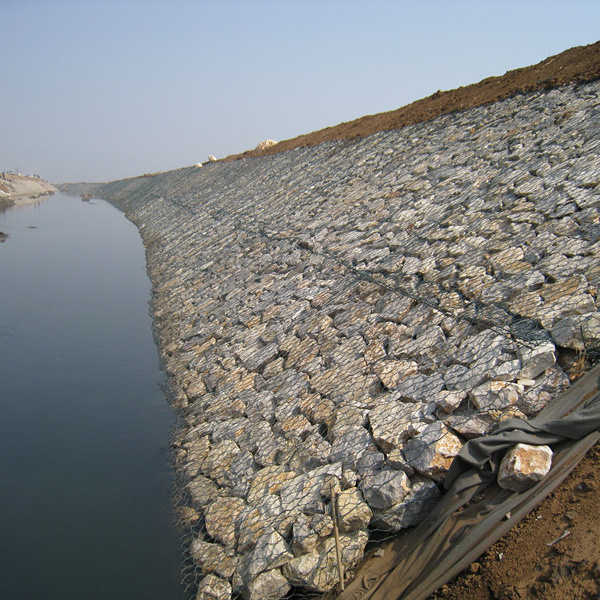Aug . 06, 2024 04:13 Back to list
High-Quality Gabion Blocks Supplier for Sustainable Landscaping and Erosion Control Solutions
The Rise of Gabion Blocks A Comprehensive Overview of the Manufacturing Industry
Gabion blocks have become a prominent choice in landscaping, erosion control, and civil engineering projects due to their versatility, durability, and ecological benefits. As the demand for sustainable construction materials grows, manufacturers are stepping up to meet this need, revolutionizing the industry with innovative practices and materials.
Understanding Gabion Blocks
A gabion is essentially a wire mesh cage filled with rocks, concrete, or other materials, primarily used for support and protection in various structural applications. The word gabion originates from the Italian word gabbione, meaning big cage. These blocks serve multiple purposes, including retaining walls, riverbanks stabilization, and decorative features in gardens and parks.
The manufacturing process of gabion blocks involves several crucial steps
1. Crafting the Wire Mesh The first step in production is creating the wire mesh that forms the outer structure of the gabion blocks. Manufacturers typically use high-quality, galvanized steel or PVC-coated wire to ensure the mesh is resistant to corrosion and environmental wear. The mesh is woven or welded to form strong, sturdy cages.
2. Filling with Material Once the wire frame is ready, it is filled with appropriate materials, which could range from natural stones to recycled concrete, depending on the specific requirements of the project. The choice of filling material affects both the aesthetic appeal and the structural integrity of the gabion.
3. Assembly and Quality Control After filling, the gabions are assembled and left to undergo rigorous quality checks. This stage ensures that they meet industry standards for strength, durability, and safety. Manufacturers often adhere to ISO standards to assure clients of product quality.
The Advantages of Gabion Blocks
Gabion blocks offer several advantages that contribute to their growing popularity in manufacturing
gabion blocks manufacturer

- Versatility These blocks can be used in a variety of applications, including road and bridge construction, soil erosion control, and even as decorative elements in gardens.
- Environmental Friendliness Gabions are a sustainable choice as they often utilize locally sourced materials and can support vegetation growth, promoting biodiversity.
- Cost-Effectiveness Compared to traditional construction materials, gabion blocks can be more affordable to produce and install, particularly for large-scale projects.
- Ease of Installation Gabion blocks can be quickly and easily installed without the need for specialized machinery, making them an attractive option for contractors and builders.
Manufacturers Leading the Industry
With the rise in popularity of gabion blocks, numerous manufacturers have emerged, each aiming to differentiate themselves through quality and innovation. Companies are investing in state-of-the-art production techniques, including automated machinery and advanced welding technologies, to enhance efficiency and product durability.
Additionally, some manufacturers are exploring the use of alternative materials for gabion filling, such as recycled plastics and eco-friendly aggregates, further positioning themselves in the sustainability market. This shift is not only appealing to environmentally conscious consumers but also helps to reduce waste in landfills.
Conclusion
The future of gabion block manufacturing looks promising, characterized by rising demand and continuous innovation. As communities prioritize sustainable construction practices, gabion blocks stand out as a practical and eco-friendly solution. Manufacturers who adapt to changing market demands and invest in quality production processes will play a pivotal role in defining the landscape of modern construction, making gabion blocks an integral component of infrastructural development for years to come.
-
Why PVC Coated Gabion Mattress Is the Best Solution for Long-Term Erosion Control
NewsMay.23,2025
-
Gabion Wire Mesh: The Reinforced Solution for Modern Construction and Landscape Design
NewsMay.23,2025
-
Gabion Wall: The Flexible, Seismic-Resistant Solution for Modern Landscaping and Construction
NewsMay.23,2025
-
Gabion Wall Solutions: The Durable, Decorative, and Affordable Choice for Every Landscape
NewsMay.23,2025
-
Gabion Basket: The Durable and Flexible Alternative to Traditional Retaining Walls
NewsMay.23,2025
-
Gabion Basket: The Proven Solution for Slope Stability and Flood Control
NewsMay.23,2025
-
Versatility of Chain Link Fence Gabion
NewsMay.13,2025






